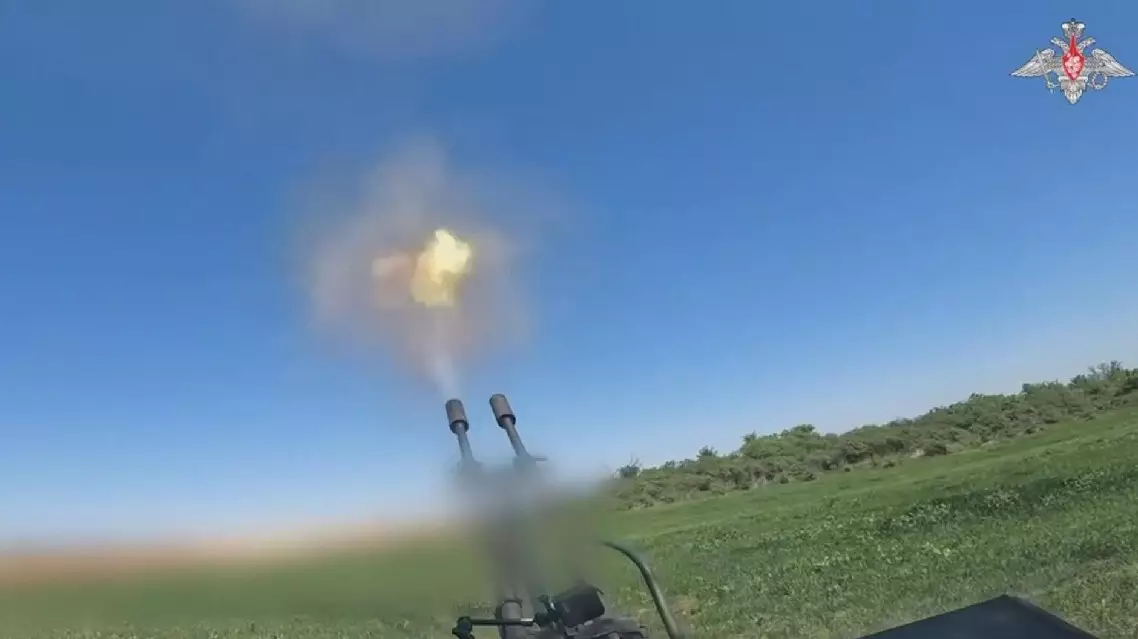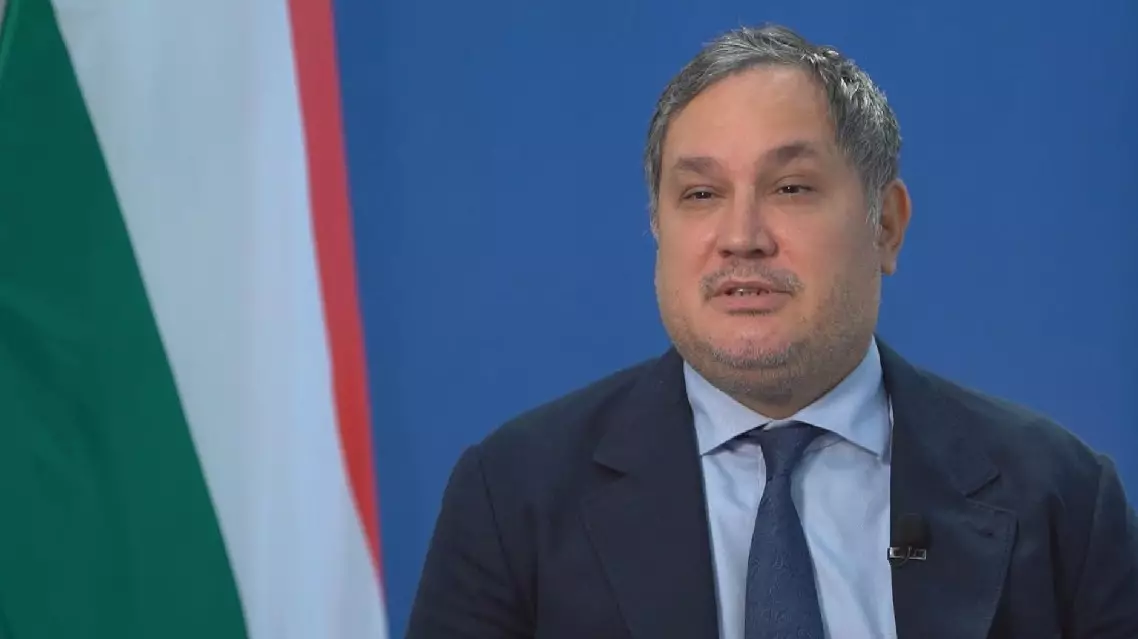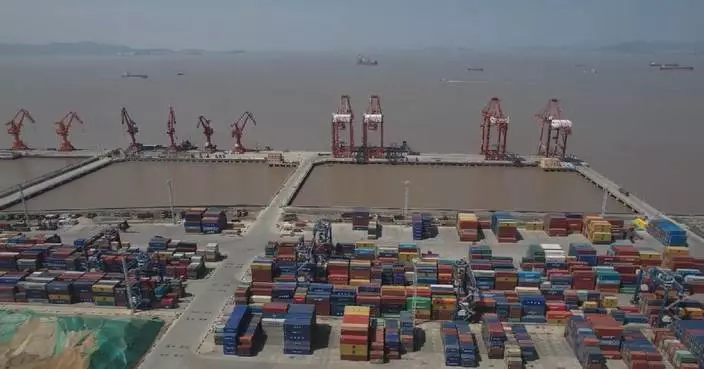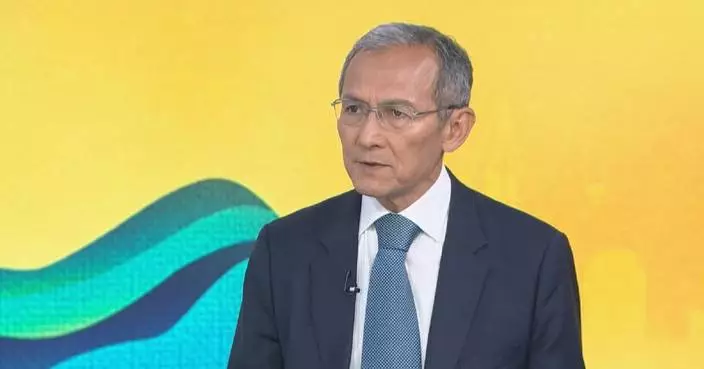Russia claimed Saturday that it had taken over a Ukrainian settlement in the Donetsk region, while Ukraine said on the same day that it had engaged in 90 combats with Russian forces at the front.
The Russian Defense Ministry said in a briefing released on Saturday that its army repelled several Ukrainian attacks and launched offensives in Kharkiv, Donetsk, Zaporozha, Kherson and other directions.
Meanwhile, the Russian air defense forces shot down one Ukrainian Air Force's MiG-29 fighter jet and intercepted 10 HIMARS rockets.
On the same day, the General Staff of the Armed Forces of Ukraine reported that its forces had 90 combat engagements on the front line over the past 24 hours, with the most intense ones in Pokrovsk and Kharkiv directions, and repelled several Russian attacks.

Russia takes control of Ukrainian settlement, Ukraine repels Russian offensives
Trade protectionism is a policy often sought by industries facing lagging competitiveness, said Hungarian Minister for National Economy Marton Nagy on the European Union's decision to impose provisional tariffs on electric vehicles (EVs) imported from China.
The European Commission on June 12 unveiled a preliminary decision to impose provisional tariffs on EVs imported from China after its anti-subsidy investigation. The pre-disclosed duties range from 17.4 percent to 38.1 percent, in addition to the standard 10 percent vehicle duty already in place.
The minister reaffirmed Hungary's stance on advocating for free trade and opposing the imposition of provisional tariffs on EVs imported from China in an interview with China Central Television (CCTV) in Budapest on Friday.
"The government view is very clear. We are very against these tariffs because this means protectionism rather than free competition. And we learned that free competition and globalization is good for the development of the economy. Any kind of 'wars' between countries is a very huge burden on economic development. We don't like trade wars because if somebody is posing tariffs, it's a very natural and normal reaction on the other side to set counter actions, which leads nowhere," he said.
Hungary's six-month rotating presidency of the European Union, commencing on July 1, has made enhancing the competitiveness of the European economy a key priority. Nagy noted that the European economy's declining economic competitiveness has been an enduring issue, exacerbated by the Russia-Ukraine conflict and the ongoing energy crisis.
"Frankly speaking, I think that if somebody wants to use tariffs, this means weakness. Technological weakness and competitiveness problems. Everybody knows that the European Union's competitiveness is lagging behind, losing blood from the last years. This is true for the vehicle industry itself to improve the competitiveness. And we also think that the electric vehicle market and the transition is the future," the minister said.
Nagy said that the reasons behind Europe's declining competitiveness are deeply rooted, stressing that the EU puts substantial funds to support Ukraine rather than pursuing the kinds of industrial upgrades actively sought by other major economies like China and the United States.
"Hundreds of hundreds of billions of euro, and it's not going to develop the economy. It's going to the financing the war questions, which is also a very big problem. In the European Union, we go back to Maastricht criteria, which means that the budget deficit in percentage of GDP is 3 percent. So, how can we finance a digital transition or EV or green transition without money? How can we do it? And meanwhile we have to finance the war and the difference in industry. So it is inconsistency, what I call fiscal inconsistency or incompetency," he said.
The minister added that raising tariffs and other protectionist measures will not bolster the global competitiveness of EU companies.
"I would be more happy if the European Union would go that way to subsidize the produce production, subsidize the household by electric cars and then have free competition, rather than set tariffs and then say, okay, protection of the inner market. But this is also a drag under electric car transition, because with this the transition won't be so fast," he said.
Nagy further expressed his belief that the so-called "overcapacity" of China's new energy sector contradicts economic principles, suggesting that supply and demand rebut this Western-driven narrative.
"I cannot understand what is 'overcapacity'. Because if there is an 'overcapacity', this means bankruptcy of that kind of companies, because there is no need for this product. So, if there is an overcapacity that is disappearing in the next year, so, this means there is no overcapacity. Again, if [there] would be an 'overcapacity', then the markets say that this kind of company cannot exist. If these Chinese companies exist, this means there is a need for this product," he said.

EU tariffs on Chinese EVs show weakness, create burden: Hungarian minister










